Nolan November: The Man I Married (1940)
- Samantha Glasser

- Nov 22, 2024
- 6 min read
One of the unofficial mainstays of Cinevent and the Columbus Moving Picture Show is Lloyd Nolan, an extremely likeable actor who can deliver quips like no one else. This month we celebrate his work.
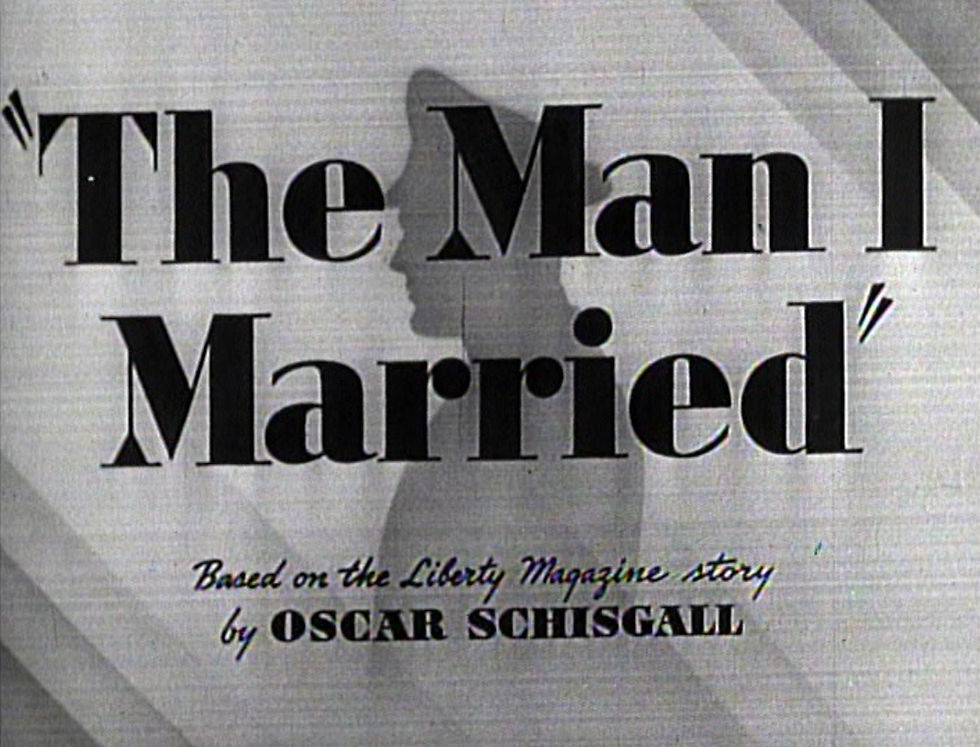
RODNEY BOWCOCK: It's 1938 when our story opens and we're introduced to Carol Cabbott (Joan Bennett), an art critic, and her husband Eric Hoffman (Francis Lederer). They seem to think it's a swell idea to travel to Germany with their seven-year-old son to visit Eric's father and take care of some business matters, assuming that the stories they've read in the newspapers about the atrocities being committed by the Nazi government are exaggerated and overplayed. After their arrival, Carol and Eric have different takes on the horrors that they're exposed to. Carol sees the hypocricy and oppression of what the government is doing, while Eric enthusiastically embraces the ideology and nationalism, spurred on by his deepening relationship with Freda (Anna Sten), a beautiful devoted Nazi. As Eric draws closer to Freda, Carol is befriended by an American newspaper reporter (Lloyd Nolan) who helps her understand what is happening in Germany and how they got there.
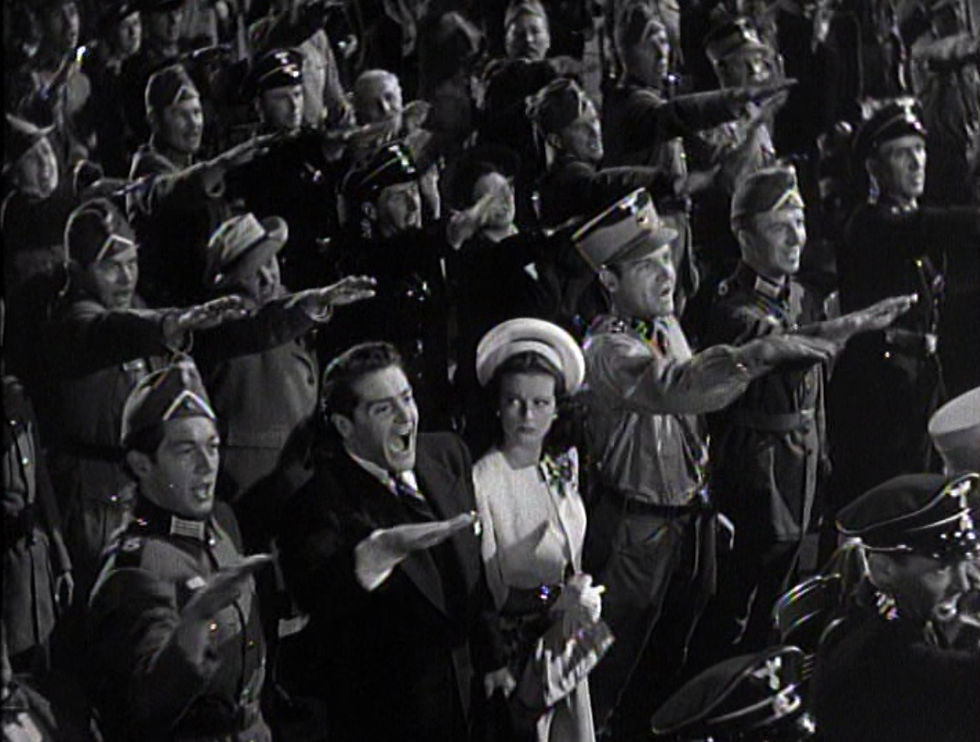
SAMANTHA GLASSER: Lederer and Bennett were delightful and sweet in The Pursuit of Happiness. Lederer was charming and handsome, and after seeing the film at Capitolfest in 2021, I began seeking out their films. That's how I first saw this movie. Because of their chemistry in the first pairing, it is especially shocking to see the turn in The Man I Married. The image of Lederer saluting enthusiastically, even maniacally, has stuck with me for years.
RB: Seeing Eric's transformation from a man marveling at the efficiency and economy of many German processes into a full-fledged Nazi demanding for the extermination of Jews is jarring and unsettling, in no small part because it is so believable. Irving Pichel's direction in the rally scene that you mention is especially horrifying. I can understand fully why it's burned itself into your brain.
"Only one man can stop this sort of thing. He invented it."
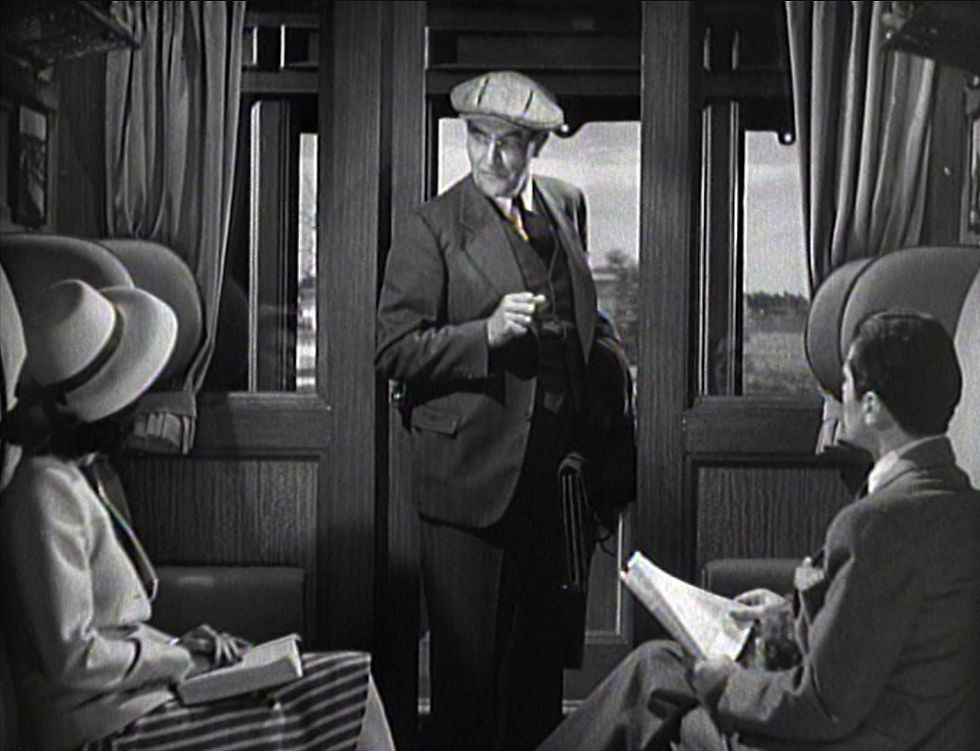
SG: The story is based on a Liberty magazine story called "I Married a Nazi" by Oscar Schisgall which was later expanded and published as the novel Swastika.
RB: Schisgall also adapted his book into the screenplay for the film, which was a good choice, as it moves briskly with no wasted minutes in its 77 minute runtime.
SG: Growing up, WWII always seemed very far away. Even when I became a fan of movies from the era, there was a distance that kept it somewhat impersonal. But the current political climate and the fact that a group of neo-Nazis marched downtown in Columbus only a week ago, the events of this film feel disturbingly possible and threatening.

RB: As a kid, I was fascinated by 20th century history. Our local history museum (at the beautiful art deco Union Terminal) had an exhibit showing how Cincinnati changed during the war years for the 50th anniversary of WWII-- this would have been 1991-1995-- and I relished those school field trips far more than any of the classmates did. I remember spending my souvenir money on cassette tapes of radio shows in the museum gift shop. Yet, I agree that it seemed like a thing that would never happen again. Now, with assorted happenings and occasions of apologism for the atrocities that were committed during the war, I realize that was probably childhood naivete. The film shows how quickly these things can get out of control.
SG: Carol's disbelief and American arrogance are relatable. She believes that the workers being shipped in from Austria are voluntary, and that the concentration camps aren't that bad because the media exaggerates to sell newspapers. When she acts in a risky way, she decries, "Anyway, I'm an American. They won't stop me." Her theories get proven wrong again and again throughout the film.
"He was always reading, and remembering, which is worse."
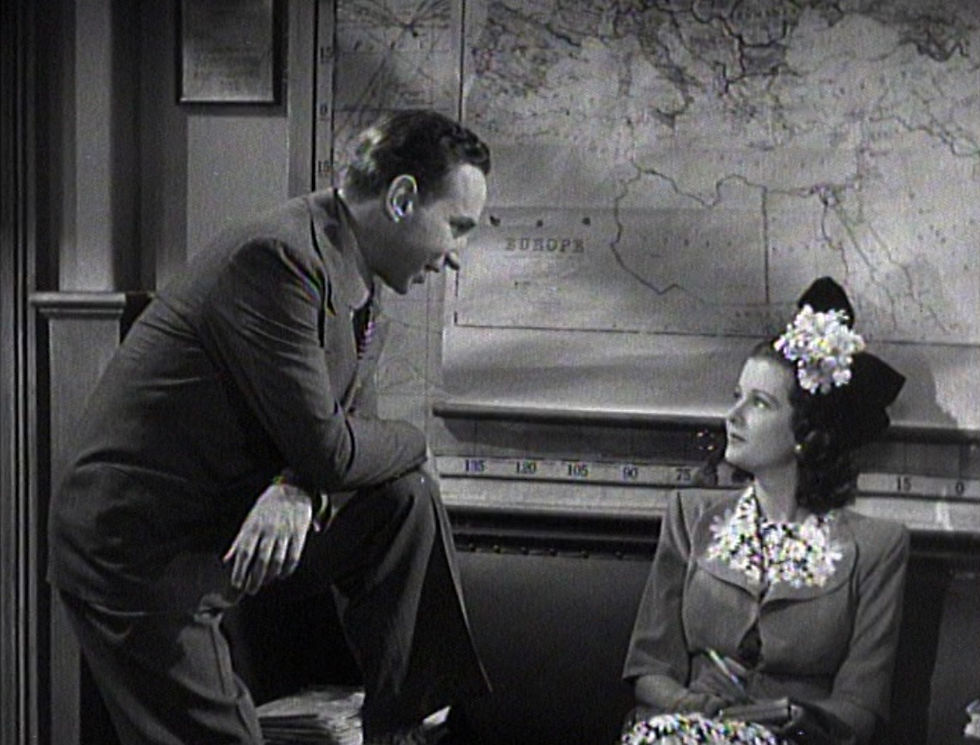
RB: It's difficult for me not to notice that both Carol and Eric display a distrust of the media. It reminds me today of how distrustful people are of the news that doesn't fit comfortably into the world-view that they believe proper. In those days, there were several newspapers in each major city, and even small ones would have their own, but radio newscasts were usually only 15 minutes once or twice a day-- even during the war. Now with multiple 24-hour channels clogging up the airwaves with opinions disguised as news, the practice of ignoring any news that doesn't tell you what you want to hear has reached epidemic levels. In this regard, Carol and Eric would likely fit right in today.
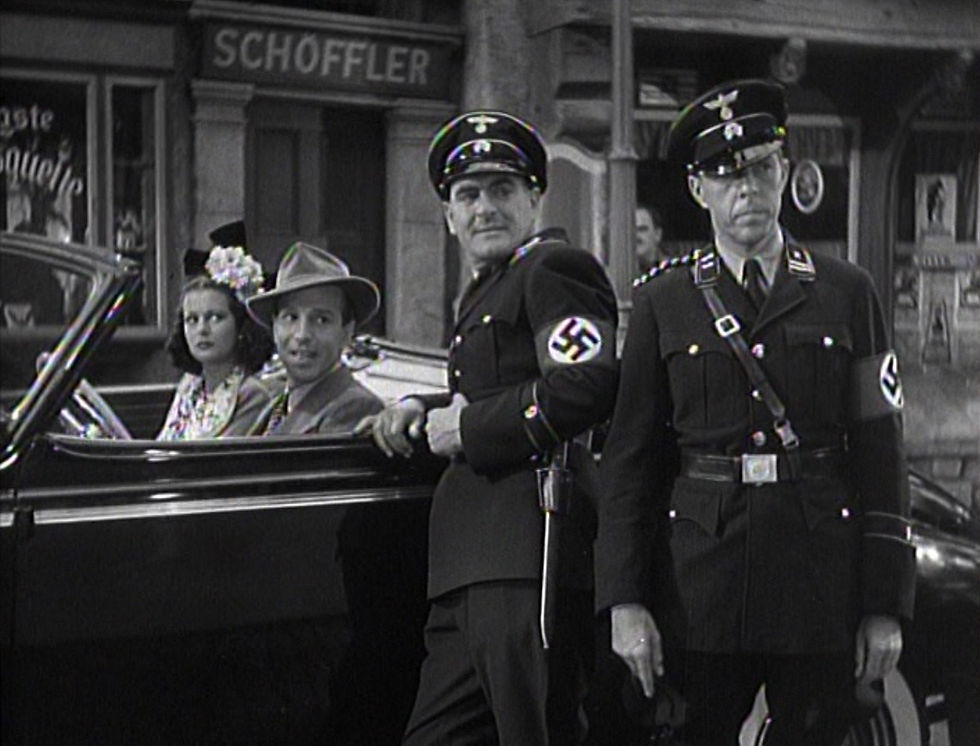
SG: Is it ironic then that the newspaperman is the voice of reason in this film? Nolan is a breath of fresh air, a white knight helping Carol see the truth and to escape a bad end. He also embodies the American tendency to maintain a sense of humor even in the darkest times. Showmen's Trade Review called him, "particularly effective." The Movies... And the People Who Make Them said that Nolan, "...has shown steady improvement in difficult roles in a number of potboilers." The writer continued, "The Man I Married does a workmanlike job of analizing [sic] fanaticism, and taken for what it is, will be found to be propaganda for the democratic way on an intelligent, mature level."
RB: Nolan definitely has a supporting role in this film, but he makes the most of his limited scenes seemingly as stereotypically American-- which often means a New Yorker in films like this-- displaying a weary acceptance of the state of the world and also a strong hankering for a hamburger and ice cream soda from the drugstore down the street.
"What with the world coming apart at the seams, it's pleasant sometimes to ponder the relative merits of hamburgers and sodas."
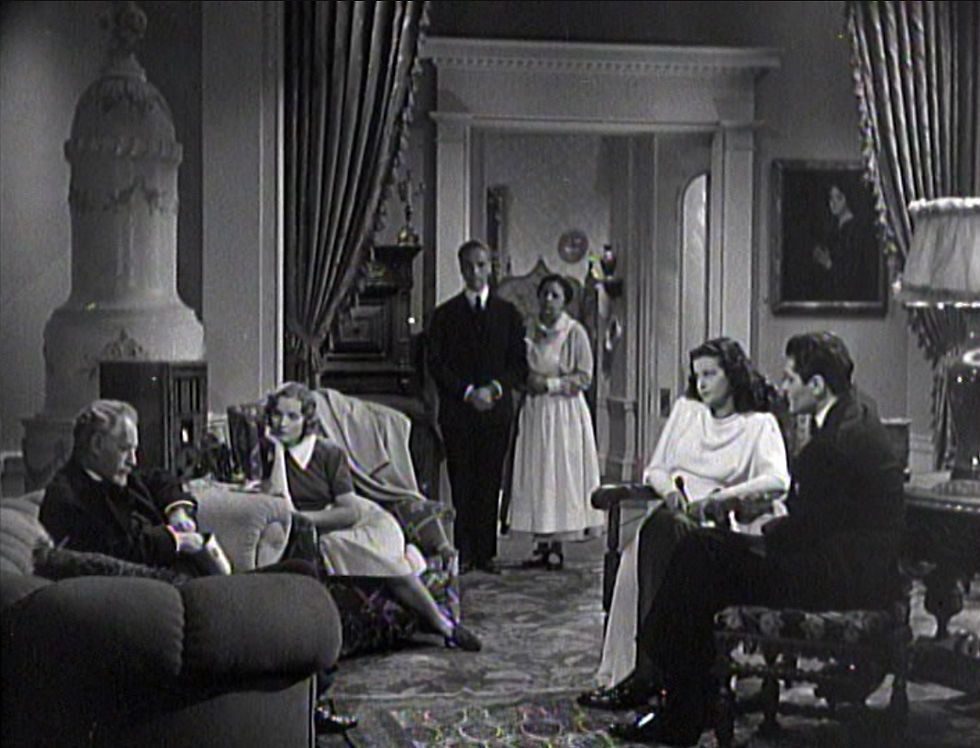
SG: Travis Banton is an incredible designer, and he makes Bennett stand out as the height of style and excess in contrast with Anna Sten and the rest of the German women who wear practical clothes and no makeup. Ken makes a big fuss about how beautiful she looks and how much he has missed seeing flashy American women during his time reporting in Europe.
Bosley Crowther for the New York Times said, "Here is a 'hate' film which, at least, lets the villains speak a word for themselves, which pictures the German Nazis as hypnotized zealots rather than congenital brutes and which tells a simple, straightforward story without wild dramatics and therefore with conviction... Smartly, Irving Pichel has directed the picture with an eye to reality, has let characters speak German plentifully when they naturally would and has not allowed occasional wisecracks, such as references to Hitler as 'Schicklgruber,' tend to burlesque a solemn subject."
Pichel, a Jew, naturally made several more rousing war films after this one including The Pied Piper and The Moon is Down.
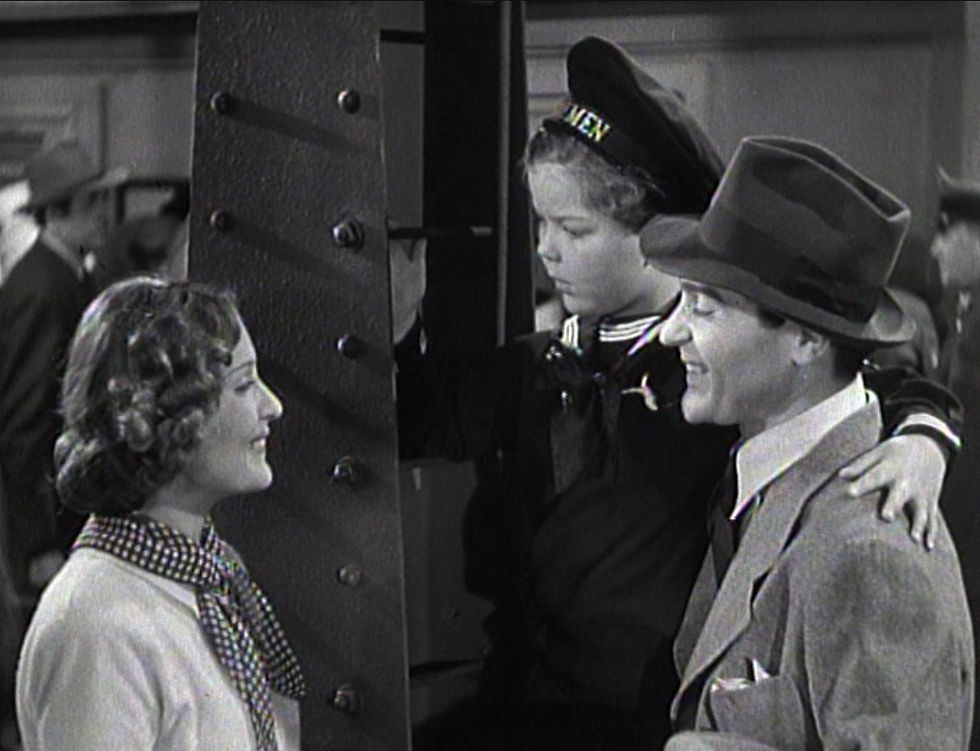
RB: At the neighborhood theaters, exhibitors generally liked the films, but complained of light audiences. "Business poor, but it's been that way on all picture of this type except Ramparts We Watch," noted A.E. Eliasen of the Paynesville, MN Rialto Theater.
SG: That one doesn't seem to have aged well. The sole review on IMDB has a reviewer begging to die while watching the boring film.
RB: M.R. Harrington of the Avalon Theatre in Clastkanie, OR noted that The Man I Married, "pulled and pleased, and from patron comments, this propaganda story hit home very effectively," yet felt that there was no place in the movies for this type of story. "People come to theatres to be entertained, not educated."
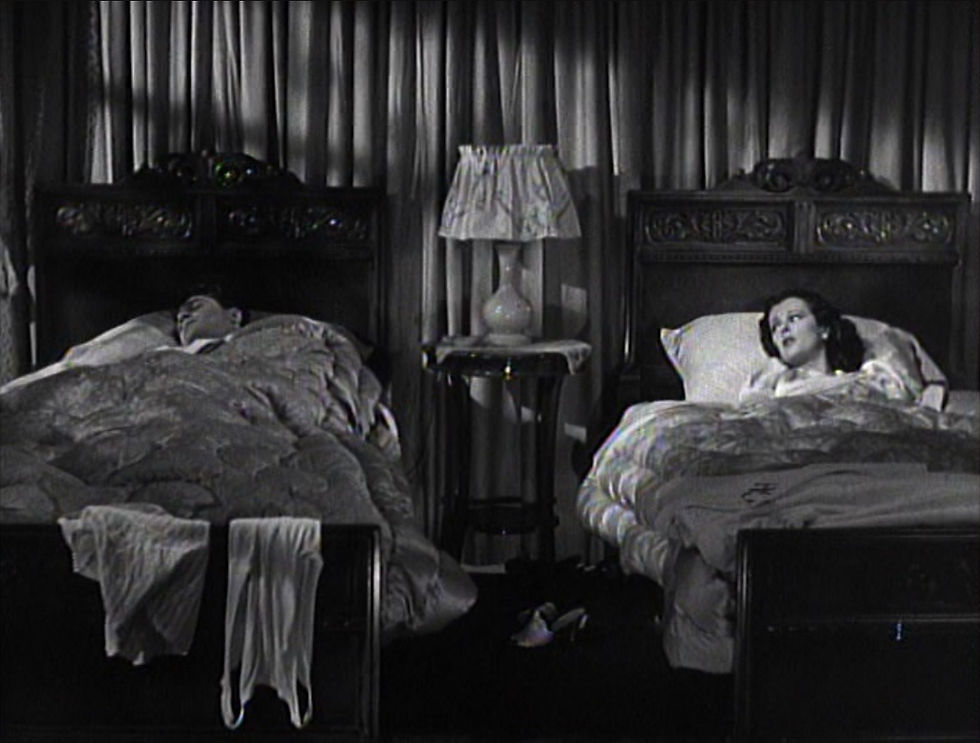
SG: The more things change, the more they stay the same. Motion Picture Reviews wrote, "A year ago the picture might have been considered controversial." Although the action takes place in 1938, the film was not released until December of 1940, which was still a full year before Pearl Harbor. Showmen's Reviews got a preview screening at Grauman's Chinese Theatre and reported gasps and short screams from the audience.
This film is propaganda surely, but thoughtful and entertaining propaganda. Screenland's reviewer said, "It's not pleasant filmfare, but because it pulls no punches, everyone should see it." I agree and believe that modern audiences would find it as stirring as its contemporaries. Four stars.
RB: This movie will stick with me for a long time, both because it's a very competent piece of filmmaking and because the slippery slope into tyranny is populating many of my thoughts these days. It's essential viewing for the classic movie fan in 2024. Four stars.




I have seen this film a couple of times, the last time a year or so ago with my son and his wife. She never watches any "old" films, but she found this one quite fascinating, (as well as loved the clothes Joan wore). So many things of interest about this uncomfortable film made at the start of the war. When I first saw Anna Sten in NANA, I thought she was exquisitely beautiful. Not that she isn't attractive here, but as you point out, no makeup, made to look more like a plain Jane. And there's the Jewish Francis Lederer playing a Nazi sympathizer. As an aside, I'm reading a biography on the Bennett family and have been wa…